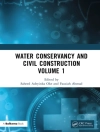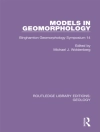This book focuses on environmental engineering, and on wastewater treatment and reuse in particular, which is a vital aspect for countries and regions suffering from water shortages. It introduces a new water cycle management concept for designing water systems that mimic the hydrological cycle, where reclaimed water is produced, stored/regulated, supplied and used in a semi-natural manner so that its self-purification capacity and system efficiency can be maximized. To ensure safe water throughout the cycle, emphasis is placed on the control of ecological and pathogenic risks using a series of quality indices associated with bioassays and molecular biological analyses, as well as risk assessments focusing on protecting the environment and human health. Together with theoretical and technological discussions, a real case of a district water system for maximizing water circulation and reuse by means of a sophisticated water cycle is presented. This book introduces readers to essential new concepts and practices and illustrates the future perspectives offered by a new paradigm for design and safety control in the context of wastewater reuse systems.
Over de auteur
Professor Xiaochang C. Wang received his Ph D from Hokkaido University, Japan in 1992. Since then he has been devoted in many national and international research projects covering water and wastewater treatment, water reuse, and urban water environmental protection, especially for water deficient regions such as northwestern China. He is active internationally and serves in International Water Association (IWA) as member of Program Committee, Steering Committee of Cities of the Future Program, Chair of Alternative Water Resources Cluster-China Chapter. He received the IWA Global Project Innovation Award in 2012 and due to his international contributions he was nominated IWA Fellow in 2011 and IWA Distinguished Fellow in 2014.












